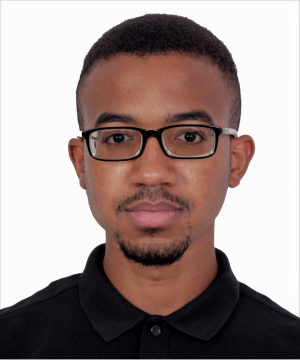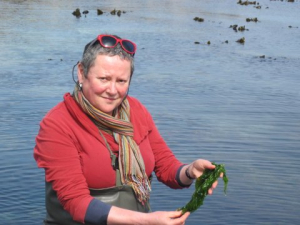Super User
Biofluorescent response in lumpfish Cyclopterus lumpus to a therapeutic stressor as assessed by hyperspectral imaging.
Juhasz-Dora, T., Lindberg, SK., Karlsen, A. et al. Biofluorescent response in lumpfish Cyclopterus lumpus to a therapeutic stressor as assessed by hyperspectral imaging. Sci Rep 14, 2982 (2024).
Read the article.
Anti-methanogenic potential of seaweeds and seaweed-derived compounds in ruminant feed: current perspectives, risks and future prospects
McGurrin, A., Maguire, J., Tiwari, B.K., Garcia-Vaquero, M. Anti-methanogenic potential of seaweeds and seaweed-derived compounds in ruminant feed: current perspectives, risks and future prospects. J Animal Sci Biotechnol 14, 145 (2023)
Read the article
Sustainable scale-up of Irish seaweed production: Quantifying potential environmental, economic, and social impacts of wild harvesting and cultivation pathways
Vance C., Pollard P., Maguire J., Sweeney J., Murphy F. (2023) Sustainable scale-up of Irish seaweed production: Quantifying potential environmental, economic, and social impacts of wild harvesting and cultivation pathways. Algal Research, 103294, ISSN 2211-9264
Read the article
Bioaccumulation of titanium dioxide nanoparticles in green (Ulva sp.) and red (Palmaria palmata) seaweed.
López-Mayán, J.J., Álvarez-Fernández, B., Peña-Vázquez, E., Barciela‑Alonso, M.C., Moreda‑Pineiro, A., Maguire J., Mackey M., Quarato M., Pinheiro, I., Espiña, B. (2023) Bioaccumulation of titanium dioxide nanoparticles in green (Ulva sp.) and red (Palmaria palmata) seaweed. Microchim Acta 190, 287.
Read the article
Hussein Ahmad Qulatein BSc, BBA, MSc & MEng
Role: PhD student
Hussein is an Erasmus Mundus Joint Master's Degree (BIOREF) scholar specializing in the Biorefining field. His academic journey includes dual bachelor’s degrees in chemical engineering and business administration from Anadolu University and a master’s degree in chemical engineering from Yildiz Technical University in Istanbul, Turkey. Driven by a passion for sustainability and renewable materials, Hussein actively seeks opportunities to contribute his expertise to academic and industrial endeavors. He envisions a future where innovative solutions promote sustainability. Beyond academia, Hussein is an adventurous globe trotter, which fuels his desire to discover novel solutions to sustainability challenges.
As he embarks on the MSCA DN SEACHEM Project, Hussein aims to refine bioactive compound extraction from seaweed while minimizing waste and environmental impact through green alternatives and innovative technologies at pilot-scale. Hussein is poised to be a driving force in offshore aquaculture innovation at BMRS.
Effect of Deployment and Harvest Date on Growth and High-Value Compounds of Farmed Alaria esculenta.
Blanco, S.; Sapatinha, M.; Mackey, M.; Maguire, J.; Paolacci, S.; Gonçalves, S.; Lourenço, H.M.; Mendes, R.; Bandarra, N.M.; Pires, C. (2023). Effect of Deployment and Harvest Date on Growth and High-Value Compounds of Farmed Alaria esculenta. Mar. Drugs 2023, 21, 305.
Read the article
Novel Post‐Harvest Processing Strategies for Value‐Added Applications of Marine Algae
Zhu, X., Healy, L., Zhang, Z., Maguire, J., Sun, D.‐W. and Tiwari, B.K. (2021). Novel Post‐Harvest Processing Strategies for Value‐Added Applications of Marine Algae. J Sci Food Agric.
Read the article
Early Warning Systems for Shellfish Safety: The Pivotal Role of Computational Science
Mateus M., Fernandes J., Revilla M., Ruiz Villarreal M., Miller P., Schmidt W., Maguire J., Silva A. and Pinto L. (2019) . Early Warning Systems for Shellfish Safety: The Pivotal Role of Computational Science.Early Warning Systems for Shellfish Safety: The Pivotal Role of Computational Science. In: Rodrigues J. et al. (eds) Computational Science – ICCS 2019. ICCS 2019. Lecture Notes in Computer Science, vol 11539. Springer, Cham .
Read the article
Freddie O Mahony, B.Sc M.Sc. H. Dip. in Ed.
Role: Scientific Advisor
Freddie O Mahony has more than 40 years of experience in aquaculture. She has worked in scientific and commercial facilities, including research and development. For the last 17 years, Freddie has single-handedly operated and managed a pilot-scale macroalgal hatchery in Bantry, Co.Cork Ireland. This work was funded by Bord Iascaigh Mhara. The hatchery produces over 20 km of seeded string annually for the Irish seaweed industry. Freddie has now joined the team at BMRS as a macroalgal hatchery manager. She hopes to transfer her knowledge and skills to the next generation of young algologists. Freddie will also continue her research into cultivating new species of red seaweeds.
SeaChem

The overarching aim of the SeaChem DN project is to provide high-level training in the offshore cultivation and valorization of seaweed to a new generation of 10 high-achieving doctoral candidates (DC) and equipping them with the transferable and scientific skills necessary for thriving careers in the burgeoning area of non-land-based biomass cultivation and use. This international training program, encompassing 6 intersectoral partners (5 academic, 2 non-academic) in 4 countries, focuses on innovative technological developments across a range of interdisciplinary fields such as construction engineering, materials science, (micro-)biology, (bio-)chemical engineering, environmental biotechnology and machine learning. The success of SeaChem will be achieved by a unique combination of state-of-the-art doctoral research projects, intersectoral secondments, international mobility and unique interdisciplinary courses.
Research objectives
- Develop new, cost-effective and sustainable offshore aquaculture technologies to be integrated in pre-existing offshore infrastructure (e.g., windfarms, uncommissioned drilling rigs) in which the durability of integrated stainless-steel structures in the highly exposed marine environment will be assessed and monitored
- Develop future-proof advanced seaweed cultivation technologies by defining current and future optimal conditions for offshore seaweedaquaculture. Geo-mappingwillbeappliedtopinpointideallygeographicallocationsforoptimumseaweedgrowthandyield
- Develop cutting-edge sustainable extraction techniques by applying intensified chemical (microwave and ultrasound) and enzymatic
processes capable of recovering a large spectrum of high-value compounds, to be further used in high-end applications
BMRS Role
BMRS will host DC 9 who will develop sustainable procedures for the extraction of bioactive compounds from seaweed without
generating biological waste.


